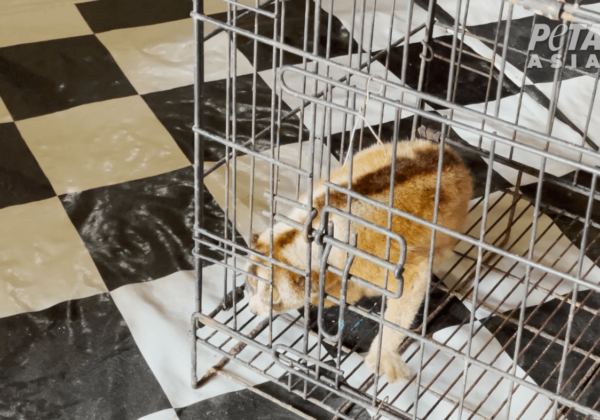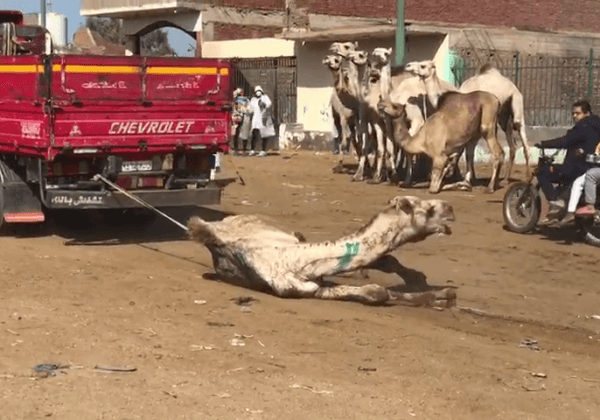Progress! Cambodia’s Biggest Attraction, Angkor Wat, Set to End Elephant Rides
Three years after Sambo the elephant dropped dead after being forced to carry tourists on her back at Angkor Wat, the Angkor Elephant Group Committee—the temple’s elephant-ride operator—has agreed to end the rides.
PROGRESS! Angkor Wat will ban elephant rides by 2020! ?
Remember: The only way to force elephants to give rides or perform tricks is through violence and domination. If you travel anywhere that elephant rides are offered, refuse to support this cruelty. pic.twitter.com/Cnio5b0RUt
— PETA Asia (@PETAAsia) June 14, 2019
Tourists who ride elephants have sustained injuries and even been killed.
Progress—but Not Quite a Victory
Although an elephant-ride ban should be implemented immediately—not in early 2020, as is reportedly the plan—we applaud the Angkor Elephant Group Committee for choosing to end this merciless cycle of abuse. We urge the committee to retire the 14 elephants it currently holds captive to a legitimate sanctuary, where they’d have the freedom to roam, forage, socialize, and play on their own terms.
No Animal Should Be Forced to Give Rides
Elephants aren’t the only individuals forced to ferry tourists and their belongings on their backs. One PETA-published eyewitness report revealed horrific abuse of horses and camels forced to haul visitors on their backs or in carriages at the Great Pyramid of Giza, Saqqara’s ancient burial site, and Luxor’s royal tombs in Egypt, in the blistering heat without access to food, water, or shade. Click here to help these horses and camels.
A PETA Asia exposé of working animals in Petra, Jordan, revealed the terrible suffering of horses, mules, donkeys, and camels forced to carry tourists under the hot desert sun.
Animals around the world are similarly forced to bear the weight of humans, carriages, and tourists’ luggage, and every traveler who books an excursion involving captive animals is supporting this merciless cycle of abuse.
PETA has compelled countless companies and officials, including those in Petra, to implement more humane modes of transportation as well as animal-friendly activities and entertainment. Will you join us?
Animals deserve to be treated with respect, not shackled and ridden to death. We know it, the Angkor Elephant Group Committee knows it, and we think compassionate people such as yourself know it, too. Click below to urge Mount Everest Group, an advertiser at the Chitwan Elephant Festival in Nepal, to stop supporting cruel elephant rides and “games” by clicking the button below:









